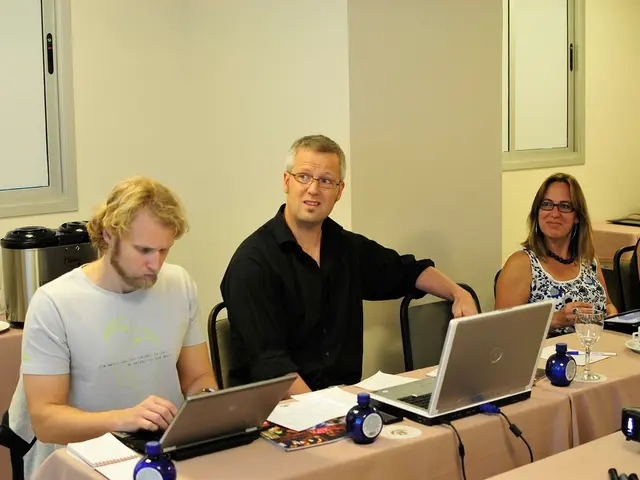Danish-American Tensions: The Greenland Saga
Potential encounter between Danish Foreign Minister Rasmussen and U.S. counterpart Rubio amidst escalating Greenland disputes
Texas-sized Greenland has sparked a diplomatic storm between Denmark and the US, with intensity reaching a fever pitch before this week's NATO meeting. Danish Foreign Minister Lars Løkke Rasmussen is eyeing a get-together with his US counterpart, Marco Rubio, amidst the Greenland drama.
A Dance of Dates (initially said, then clarified)
The Danish foreign ministry initially confirmed a side meeting with Rubio during the NATO foreign ministers' gathering, however, later clarified the rendezvous was not scheduled.
NATO's Premium Season
The NATO meeting in Brussels serves as a rehearsal for the June leaders' summit in The Hague. Rubio's attendance coincides with the Trump administration's push to reshape the global economic landscape, with an upcoming wave of tariffs and the specter of a global trade war looming large.
As the world braces for this transformative economic shift, Europe, including Denmark, stands as a key battleground. Vice President JD Vance has set the stage with his call for Germany to acknowledge the far right, adding to the ideological rift between Europe and the US.
Greenland: The Global prize
Trump's insatiable appetite for Greenland could be the spark that ignites the powder keg. Strategically situated in the heart of the Arctic, Greenland's rich resources make it a coveted prize. Its possible acquisition by the US has ruffled feathers and raised concerns across the continent, especially as Denmark reiterates Greenland's status within NATO and increases efforts in Arctic defense.
The Big Split
Ahead of the NATO summit, Trump is pressing members to meet his defense spending target of 5% GDP – a goal that Denmark, and other countries, currently fall short of. The ongoing stalemate between Denmark and the US may challenge the alliance's unity at critical junctures.
The Ultimate Threat
Danish Foreign Minister Lars Løkke Rasmussen has hinted that the US-Denmark defense agreement, which allows American troops to be stationed on Danish soil, could be on shaky ground if the US persists in meddling in Greenland's affairs. This means the precarious Greenland situation could potentially fracture NATO, endangering the alliance's cohesion.
The NATO meeting will serve as a battleground for Arctic security and the future of the alliance, all while wrestling with the diplomatic conundrum posed by the potential disagreement over Greenland.
Bonus Insights:
- Trump's interest in Greenland stems not only from its rich resources but also its strategic location as a gateway to the Arctic[1][2].
- Denmark has reinforced its stance on Greenland's sovereignty and NATO membership while underscoring the need for stronger Arctic defense and increased NATO presence in the region[3].
- The US-Denmark defense agreement is instrumental in the deployment of American troops and facilities in Denmark. In the event of escalation or withdrawal, the agreement's future becomes uncertain, raising concerns for NATO unity and military cooperation[4].
- Lars Løkke Rasmussen, the Danish foreign minister, is anticipated to discuss the Greenland issue with Marco Rubio, the US counterpart, in a potential conversation during the NATO meeting.
- The June leaders' summit in The Hague follows the NATO meeting in Brussels, where politics, including the Greenland saga, will dominate the agenda.
- Amidst the global economic transformation, Greenland's rich resources make it a coveted prize, with its potential acquisition by the US causing concerns across the continent, particularly as it relates to Arctic security.
- The ongoing stalemate between Denmark and the US over Greenland may jeopardize NATO's unity at crucial moments, potentially challenging the alliance's cohesion.
- Considering the US-Denmark defense agreement allows American troops to be stationed on Danish soil, the precarious Greenland situation could potentially threaten the agreement's continued existence, which has implications for NATO unity and military cooperation.








